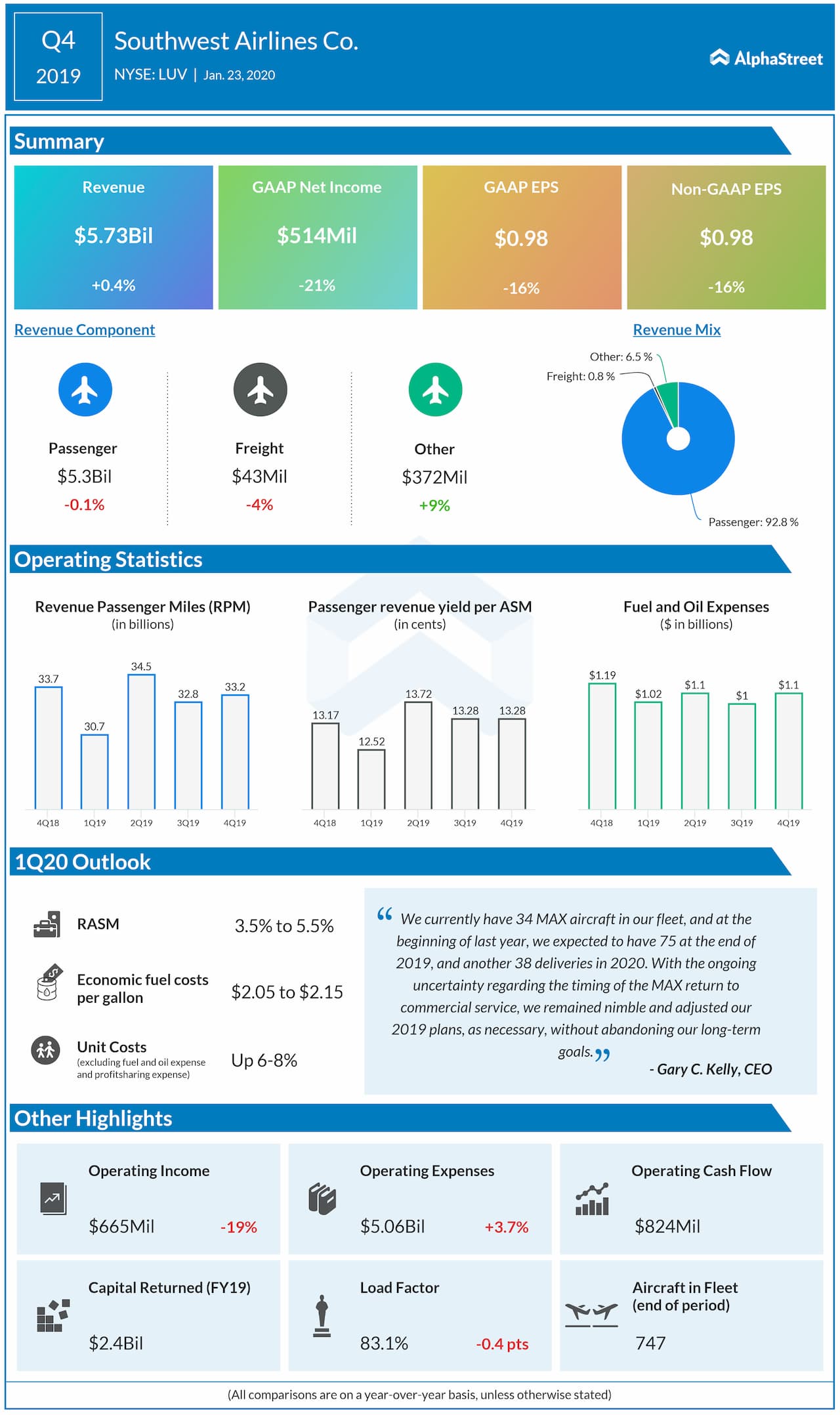The country’s legacy carriers are already in the innovation mode, so as to deal with the rising costs and aging fleets. The growing competition would prompt Southwest and JetBlue to think beyond their low ticket prices to stay relevant. Rising unit costs have narrowed the companies’ operational advantage over their legacy counterparts.
Related: Southwest Airlines Q4 2019 Earnings Call Transcript
Southwest flies to a significantly higher number of passengers to bigger cities, compared to JetBlue, which helps the company monetize its services effectively. At the same time, it is more prone to setbacks when things go wrong, such as fuel price fluctuations and economic slowdown. On the other hand, the impact of most market headwinds on JetBlue could be comparatively less. For instance, it is not much affected by the Boeing (BA) crisis, due to non-exposure to the 737 Max jets.
Having said that, Southwest has a clear advantage as far as its performance on the bourses is concerned. Analysts’ consensus rating on the company’s stock is moderate buy, with a target price of $23 that represents a 10% upside. In contrast, analysts overwhelmingly recommend holding JetBlue stock and predict muted growth.
Is Southwest a Buy?
One of the key factors that make Southwest appealing to long-term investors is its initiatives aimed at easing cost pressure and ensuring stable revenue growth. After adding several new routes to its itinerary, Southwest currently flies to all the major US cities. Also, it keeps expanding the fleet, which includes some of the biggest aircraft. Southwest is poised to retain its leadership position in the segment, aided by the growing demand for air travel and competitive prices.
Q4 Outcome
In the fourth quarter, earnings of Southwest declined in double digits hurt by flat passenger revenues, mainly due to grounding of the 737 Max fleet. Meanwhile, JetBlue reported earnings growth for its most recent quarter, aided by strong passenger traffic that pushed up the top-line by 3%.
Related: JetBlue Q4 2019 Earnings Conference Call Transcript
Going forward, Southwest’s profitability might get a boost from the reduction in depreciation expenses pursuant to a recent agreement with Boeing, on compensation for losses incurred due to aircraft groundings.

